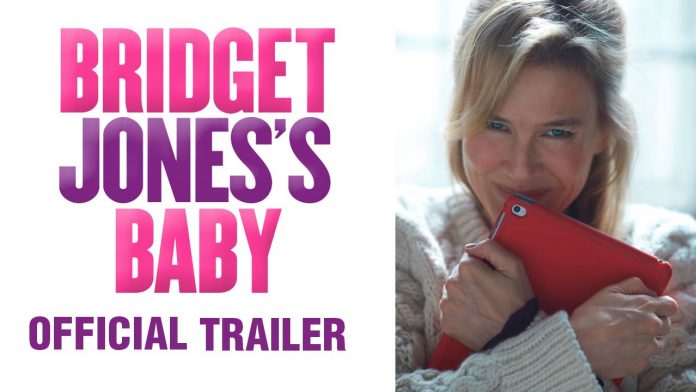RENEE Zellweger is back as everyone’s favourite singleton after a 12-year gap in Bridget Jones’s Baby, a surprisingly enjoyable work that proves that it was the right decision after all to grant a third instalment.
The film starts off with Bridget celebrating her 43rd birthday alone in her London apartment, due to a disastrous love life and her close friends having their fair share of commitment, namely being or about to be parents. A decision to spend the weekend at a festival with her colleague Miranda (Sarah Solemani) leads to a one-night stand with dashing American mogul Jack Qwant (Patrick Dempsey), which stays that way due to a misunderstanding on Bridget’s part.
Not long after, Bridget is invited to a christening where she is to be godmother, but the godfather of the baby turns out to be none other than her ex, the snobbish but moral Mark Darcy (Colin Firth), supposedly happily married. Previously the two come into brief but awkward contact when they arrive at the funeral for none other than Daniel Cleaver (thus explaining the absence of Hugh Grant). When it transpires that he is in the middle of a divorce, the ex-lovers reunite and proceed to sleep together. Not prepared to take the relationship further for the sake of history repeating itself, she moves on.
But eight weeks later, she discovers that she is pregnant and on top of that, has no idea who the father is. With both men back in her life, each unaware of the other’s dalliances with Bridget, the rest of the pregnancy serves up scenarios only Bridget could create.
The first film was worthy of its praise, however the second one, though nothing disastrous, did make one wonder if it was best keeping the first as it was. One could be forgiven for a lack of enthusiasm when it was made clear this would be made, especially given the lack of Grant. The result however is a surprising one, proving the series can survive without him and is actually quite entertaining, even if its first few minutes do create a sense of dread.
The best thing about this lies with the fact that Mark and Jack are both portrayed sympathetically and neither has a trait that makes one likeable and the other not. Though as the film progresses, we have a preference to who should be the father, the likability of both remains.
Though we don’t get a restaurant or a fountain fight, we do receive an ongoing battle of wits when it becomes clear of the situation that they find themselves in. At a session designed to prepare parents for the birth, both men accompany Bridget and to Mark’s disdain, Jack shuts up any talk of the truth by pretending they are a gay couple with Bridget acting as their surrogate. Sequences like that are key because they work and also prevent the film from becoming derivative and that is just from the men involved in Bridget’s life.
Firth plays Darcy with the same debonair that makes him arguably the closest actor today to a modern-day Cary Grant, whilst Dempsey provides enough appeal to work as a successful alternative to Daniel Cleaver.
The film’s real success at humour comes from Bridget’s workplace which is the centre for a series of event that give an insight into the dangers of working on live television. In one instance, when Miranda interviews the Foreign Secretary (Patrick Malahide) whilst under Bridget’s direction. Unfortunately, Bridget’s inadvertent dictation results in Miranda giving supposed praise to a deceased war criminal who the politician is there to criticise.
Another depicts Bridget introducing the company’s new method of communication, only for a series of glitches resulting in her Google search history being unveiled to the press, including one about the new unpopular boss.
There is even a witty moment during the actual birth sequence towards the end when the doctor (Emma Thompson) fully aware of Bridget’s predicament compares the DNA testing to the final of The X Factor. There is that traditional British sense of humour that the film includes and it is a relief that the filmmakers still have the ingredients to make a piece like this in spite of how third parts of comedy trilogies often.
Not all of the jokes work and there are a couple of missed opportunities, such as a scenario involving the usage of modern technology, namely Snapchat which doesn’t get the humour cycle off to a good start. The scenes involving Thompson as the doctor don’t go far enough to deliver outright laughs mostly and it is only during the birth sequence in the third act that the humour from her character starts to appear, albeit briefly.
There is a corny feel to it even by romcom standards but there is a charm within that ultimately makes it bearable although at times just on the cusp.
There is a cast at the centre to thank for this working and in the end, Bridget Jones’s Baby is in general a feelgood Brit flick that reminds us why we first enjoyed watching the character all those years ago.




























